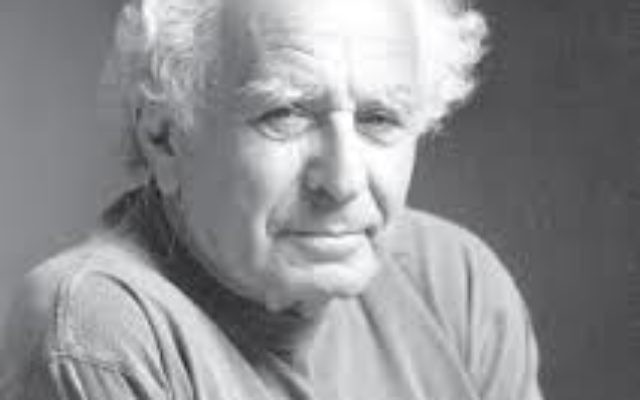Why Rabbi Was Wrong at Ali Funeral
A few years ago I began receiving Rabbi Michael Lerner’s blog. Rabbi Lerner proposed that the blog would reflect the ideas of his newly formed movement in Judaism, Tikkun, an association of the spiritually progressive whose motto is to heal, repair and transform the world.
While theoretically it is noble idea, the fact is that tikkun (repair) is as old as the Talmud itself. But I did have a question: Is Rabbi Lerner falling into the trap of excessive claims?
Have not our sages in Pirkei Avot cautioned against tafasta merubeh — namely, that he who says he caught a lot actually caught nothing.
Recently I received the Tikkun blog with a link to a YouTube video of Rabbi Lerner’s speech at Muhammad Ali’s funeral June 10.
I had missed the beginning of the funeral, including Rabbi Lerner’s performance in the hesped, but when I watched the video, I immediately became disturbed by his claim. “I come,” the rabbi said, “as a representative of American Jewry.”
Indeed? I became disturbed by this chutzpah claiming to represent this complex and diffuse entity, American Jewry. Isn’t this a presumptuous self-image?
Let me ask you, Rabbi Lerner: Mi samchah? Who placed you on this pedestal, and by what right can you claim to speak as a representative of American Jewry? I am sure that most American Jews are unaware of you or your movement. You can hardly claim a large following agreeing with you or supporting your views.
One central theme in Ecclesiastes is hakol b’ito: Everything has its time. Rabbi Lerner was invited to a hesped, whose purpose is to eulogize the departed, not to offer political speeches. According to the Shulchan Aruch — as a rabbi you should be familiar with it — the function of a hesped is to enhance the departed’s standing in the community, to declare the sadness for a person’s departure from this world, to escalate his good name and to humanize him.
Instead, you chose the occasion to propagandize your ideals for self-aggrandizement.
You stood there in front of people prone to condemning Israel and, instead of speaking to ensure Israel’s existence, you justified its condemnation. I wonder whether you would have justified Germany’s treatment of Jews — after all, wasn’t the Versailles treaty harsh on Germany?
You are like many who neither sympathize nor empathize with Israel and are in a haste to condemn it without understanding the meaning of justice.
As a Holocaust survivor, I can understand Jews’ anger and their sense of distrust, rooted in millennia of betrayals. Can you?
My anger in my youth was influenced by Jabotinsky’s militant ideology and his historical view of constant betrayal, and mine was a response to British foreign policy that was more concerned with access to oil than humanism. Although my anger has abated, my distrust continues to affect me.
But what is the reason of your anger? It is not caused by, as it did for most Jews, the constant betrayal of the Christian and Muslim worlds. It may be that your anger has an extrinsic reason, designed as a response to gain acceptance into groups who otherwise hate Jews.
Your seeming anger is a clear indication that you speak without understanding Israel’s status in the midst of people who seek its destruction. You are blinded by your desire for status. Have you forgotten the teaching in Avot that tells us do not condemn a person unless you have stood in his place? Have you ever stood lonely and abandoned, surrounded by your enemies? Ask the survivors of the many defensive wars that Israel had to wage.
Perhaps your wish, although at an inappropriate time, was to teach Mussar (moral and ethical chastisement)? Then you must learn two conditions essential for Mussar teaching: It should be taught quietly and deliberately — sine ira et studio (without anger and fondness; without hate and zealousness).
Instead, you wrap yourself in a tallit and seek to present yourself as an admixture of Jeremiah, Isaiah and Micah with a dash of Marxism, all designed as a part of your self-aggrandizement, while you seek the approval of the audience — in this instance, particular audiences granting you approval and legitimacy.
You reminded me of my professor’s critique of a speech I gave in which, like a preacher, I raised my voice. The professor said, “You are like a Baptist preacher who wrote in the margins of the Bible to assist him delivering the Sunday sermon: Argument week, shout like hell.”
And shout you did. But it was in vain, for your voice and its content became merely a shout in an empty desert. In sum, you gained little and accomplished even less. You have violated the essence of the hesped: You have not elevated Ali or added to his ideals of justice, but you spoke ill against your people.
If you indeed wish to spread Mussar, you must have the temperament of Hillel and not of Shammai, for as our sages have cautioned us: The angry person cannot be a teacher.
Two great people were born in Louisville, Ky.: Louis Debnitz Brandeis and Muhammad Ali, each bringing honor to his respective people and to America. They shared a concern: a desire for justice for all.





comments